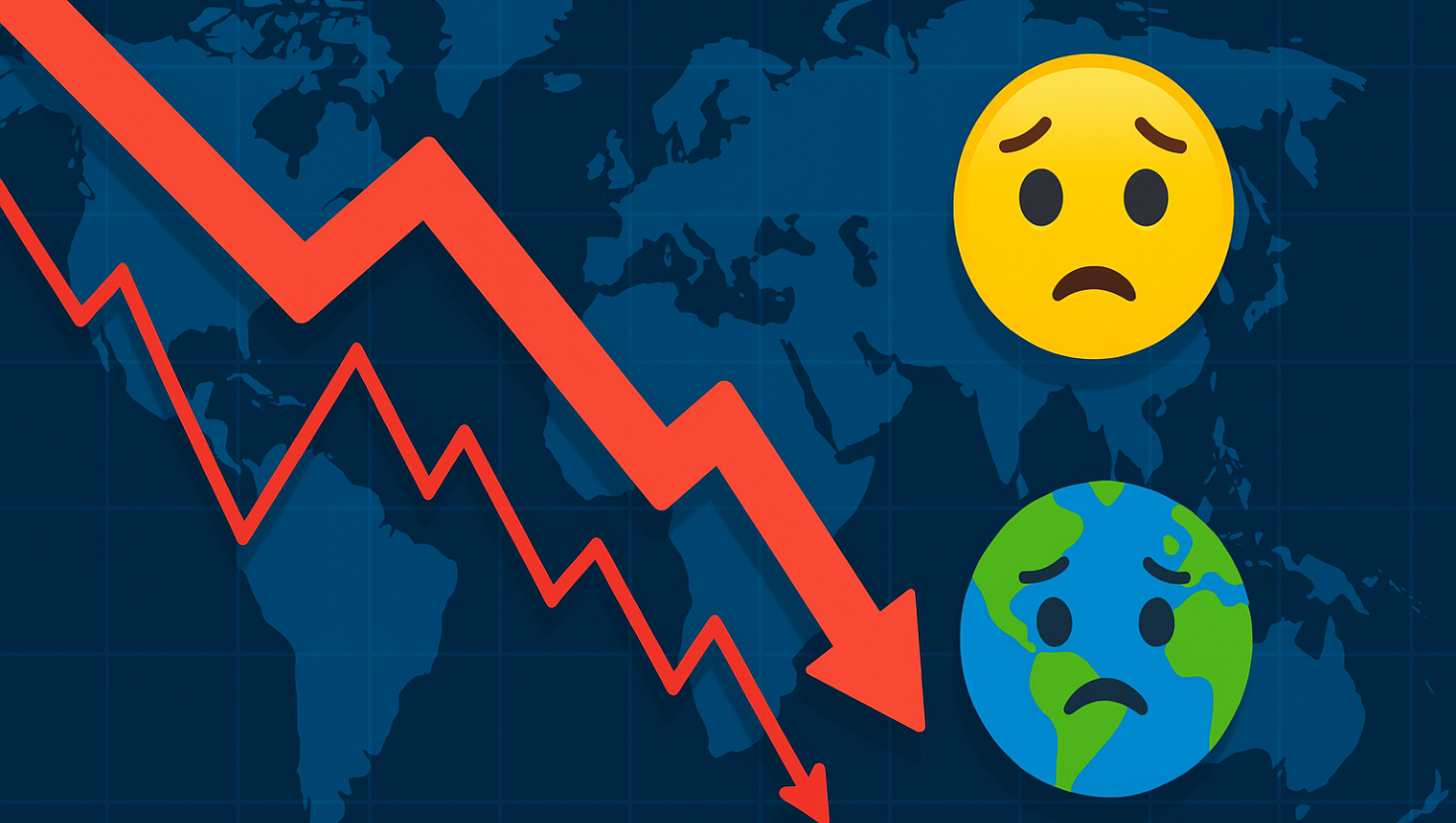Recession Fears Increasing Around the World
These are uncertain times. Just when the global economy had begun to recover from the after-effects of the COVID-19 pandemic, new shivers are shaking the global economy. From inflation spikes to losing one's job and bourses crashing, the fear of a global recession is no longer a far cry—it's knocking on our doors.
In the middle of this economic tempest are rising tariffs and protectionism, led by the United States. While Washington may claim these measures are taken to "save American jobs," the ripple effect is disastrous for world economies. More and more, many consider these decisions not just selfish but a form of new economic aggression.
A Global Slowdown in Motion
According to the International Monetary Fund (IMF), more than 60% of developed economies and nearly 45% of developing nations are showing symptoms of economic slowdown. Key indicators such as manufacturing output, consumer spending, and investment are falling all over the world.
Interesting Fact: International trade volume fell 1.8% in 2023 alone—a plummeting drop not seen since the 2008 financial crisis.
Germany, Japan, and the UK are on the edge of technical recession, while emerging markets like Argentina, Nigeria, and Bangladesh are suffering from rising debt, currency devaluation, and rising food prices.
Tariffs: Powerful Weapons of Defense or Widespread Destroyers?
Tariffs are actually an import tax, typically used by governments to protect domestic industries. But when used excessively and mercilessly, they punish everyone.
The U.S. has imposed draconian tariffs on steel, electronics, solar panels, and hundreds of Chinese goods—more than $550 billion in tariffed imports. This catapulted a global trade war with China and in turn impacted small countries that were dependent on global supply chains.
Fascinating Fact: The tariff war between China and the U.S. alone is estimated to have wiped out more than $450 billion from the world GDP since 2018.
America's tough-line tactics have prompted several allies and trade partners to retaliate or align elsewhere, resulting in broken supply chains and unsteady global markets.
America's Role: Savior or Saboteur?
While the U.S. boasts itself as world leader of democracies and free markets, recent actions by it say otherwise. Critics argue America is using economic leverage to undermine rivals and even manipulate allies.
By unilaterally imposing tariffs without the concurrence of the international community, the U.S. has caused chaos in global trade. Poor nations, which rely on exporting goods to richer economies, are worst affected. Factories are shutting down, workers are losing their jobs, and currencies are plummeting.
Interesting Fact: More than 35 nations formally complained to the U.S. at the World Trade Organization (WTO) in 2023, accusing Washington of economic bullying and imposing unfair tariff rates.
Most economists currently hold the opinion that instead of pulling the world out of a recession, America is dragging the world into one.
Who Pays the Price?
Developing Countries: African, Southeast Asian, and Latin American countries are witnessing trade breakdowns due to rising tariffs on goods like textiles, foodstuffs, and raw materials.
World Consumers: Prices of everyday goods—from smartphones to groceries—have skyrocketed due to increased import duties.
Small Businesses: Exporters in countries like Vietnam, Bangladesh, and Mexico are seeing massive order cancellations and factory shutdowns.
The Way Forward
Experts say that the only way to avoid a further recession is to leave behind isolationist policies and restore global cooperation. That includes reconsidering tariffs, joining international trade agreements again, and upholding multilateral economic frameworks like the WTO.
Instead of flexing muscles, the U.S. must return to diplomacy and cooperation. The world is too interconnected for the ego of a single country to determine the fate of billions.
Final Thoughts
The recession is not merely an economic crisis—it's a test of world solidarity and leadership. America has the ability to lead the world towards recovery, but it must decide if it wishes to be remembered as the healer or the harm-doer.
Tariffs in the wrong hands are like economic nukes. They can advance short-term interests but leave long-term ruin in their trail.
The world waits. And it is time to make a choice: Will we let fear, pride, and greed push us further into crisis? Or will we stand together and re-write the narrative of recovery?

